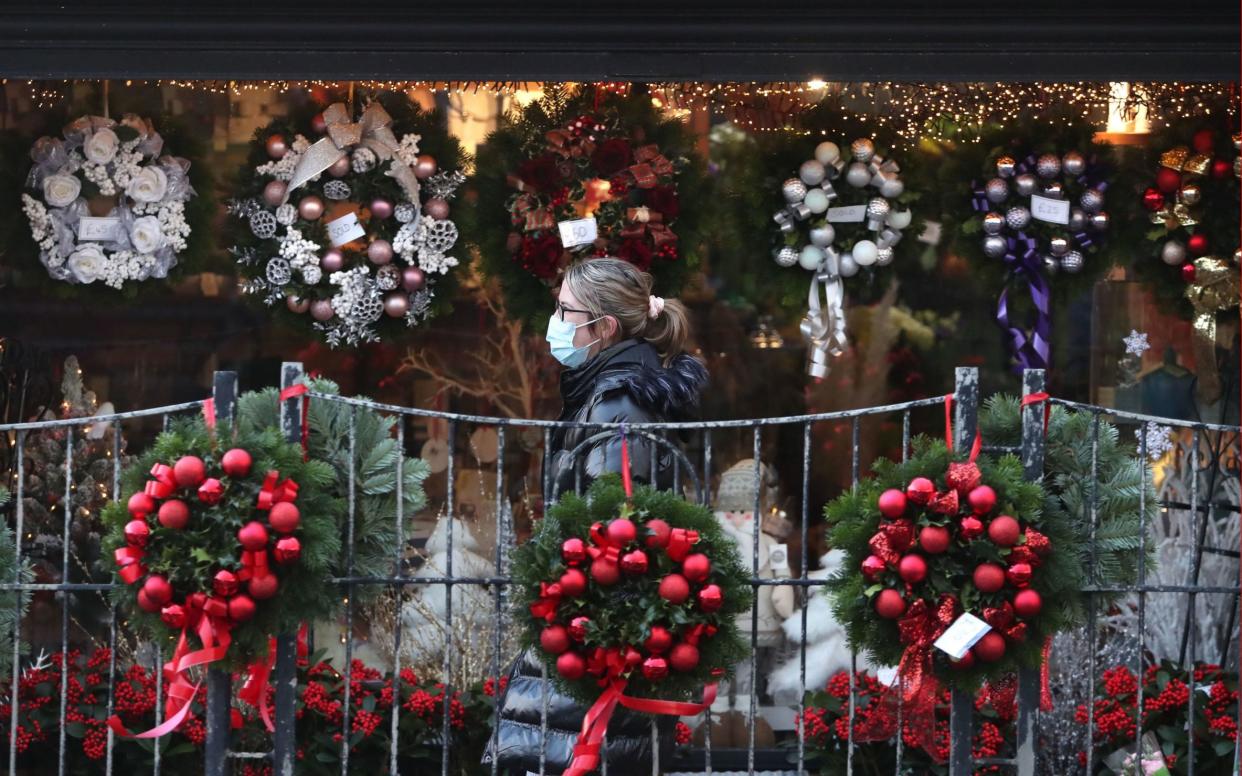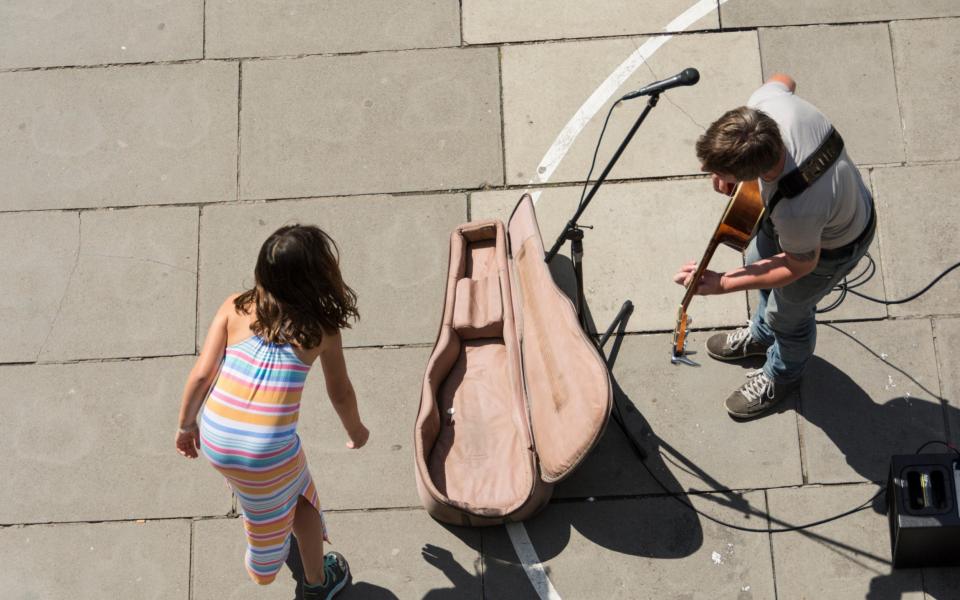Letters: The confusing consequences of the PM’s mission to save Christmas

SIR – With regard to the new rules for Christmas (report, November 25), I would like the Prime Minister to explain to me why it is both illegal and a danger to public health for my son to visit my house on December 22 – yet perfectly legal and safe for him to visit the following day with his wife and their two children, along with my other son, his wife and their three children.
Bob Ferris
Banstead, Surrey
SIR – We have three children with families.
Which one do we exclude?
Rev David Hoskins
Harrogate, North Yorkshire
SIR – My son lives in west London and I’m in west Cornwall.
The problem is that he will need two full days to travel – as will many others. Not only does this allow a mere three days with family, but it will also result in crowded roads.
Tony Waldeck
Truro, Cornwall
SIR – Every year there are many families around Britain who are separated at Christmas from relatives across the globe.
They manage – why can’t the rest of us? Now that we have come this far, why spoil it all for the sake of a Christmas get-together?
Jill Creak
Beckenham, Kent
SIR – The best Christmas present you can give to your family is to stay away from them.
You could be giving them the gift of life, which costs nothing and doesn’t even need to be wrapped up.
Janie Binns
Stockport, Cheshire
SIR – The Government appears to accept extra deaths as a price worth paying in order to save Christmas.
Why, then, is it not prepared to do this for the long-term security of the economy and the sanity of those it governs? Surely these are infinitely more important to our national wellbeing than five days of feasting with our families, however much we may look forward to them.
Richard Longfield
Weston Patrick, Hampshire
SIR – If the Government were to allow Covid-19 tests for asymptomatic people, families contemplating Christmas visits would be able to minimise the risk.
This would also, of course, require the Government to ensure that it had sufficient capacity, and to get prepared for the Christmas rush.
Nicky Coates
London WC1
SIR – In addition to pleasing the millions of people who love carols, permission to sing in church at Christmas (report, November 25) would be popular among the many organists who have been unable to play for services (or even practise) for months on end.
Peter Clark
Canterbury, Kent
Sunak’s error on aid
SIR – Aid money can be the difference between life and death for millions of women, children and men. The pandemic and the ongoing climate crisis prompt us to think deeply on the question: who is our neighbour?
We have one common home and the goods created therein are for all to share, ensuring the poorest and most vulnerable are at the centre. We firmly believe that our aid budget is an expression of this.
The Government has a vital leadership role next year when Britain hosts the G7 and climate talks. We urge ministers to ensure an ambitious action plan so needed for our common home and her people.
Rt Rev John Arnold
Roman Catholic Bishop of Salford
Chairman, Cafod
Rt Rev William Crean
Roman Catholic Bishop of Cloyne
Rt Rev Joseph Toal
Roman Catholic Bishop of Motherwell
SIR – Charity begins at home. It is quite proper for the Chancellor to cut overseas aid at this time.
A reduced budget may encourage some of those who administer the aid to spend it more wisely in the future.
Tony Scofield
Glastonbury, Somerset
The first vaccinations
SIR – Your Leading Article (November 25) is right to raise the issue of who should be prioritised in the vaccination programme.
Should it be the elderly, who are, in fact, the least likely group to test positive for Covid-19 (apart from children), and the least the likely to pass it on to others? Or should it be the younger adult groups, including the so-called super-spreaders?
Opting for the latter should help to shorten the “very long road back to normality” – as you put it – and let us all (including seniors like me) get back to normal that much quicker.
Professor Tony Champion
Newcastle upon Tyne
SIR – Immunising 66 million people with two doses of a new coronavirus vaccine will be a colossal undertaking – but there is an under-recognised community of specialists that could contribute usefully to the effort.
Travel clinics are spread widely across the United Kingdom, are professionally organised, well regulated, and have resources and infrastructure already in place. With international travel now at rock bottom, they have plenty of capacity and are ready for action.
Dr Richard Dawood
London EC1
Treasured history
SIR – Rupert Christiansen (Culture fix, November 23) is right to praise the slim, pocket-sized anthology, Palgrave’s Golden Treasury. My father owned two copies, one of which only came to light when I was clearing the loft after his death.
This was the copy that had sustained him throughout the Burma Campaign, having been given to him by a young woman he had met while on leave in Darjeeling. Together with fragments of information from his notes and family letters, Palgrave’s enabled me to piece together a long-hidden love story. For whatever reason, there was no happy ending, although I did establish that the lady in question came to Britain after the war and married an Englishman.
The romantic young Scot, meanwhile, returned home and eventually married my mother. I’m not sure if she ever found out about her rival in the loft.
Betty Macey
Clare, Suffolk
A plan for Heathrow
SIR – In response to the very sensible letter (November 24) from several local councillors, calling for government support for the aviation industry and affected communities, we have a viable solution for Heathrow which would enable the loss-making airport to be put on a sustainable footing and get Boris Johnson and Grant Shapps out of a political jam.
Heathrow Hub’s proposal to extend the northern runway at Heathrow came second in the airport’s commission process and is a cost‑effective solution to restructure the airport, which will make it both more resilient and positioned for incremental growth once the pandemic has passed.
Extending the runway will cost just £4.3 billion for the first phase. The low cost means that the extra capacity can be used to reduce congestion and make the airport more efficient. This, in turn, will help to reduce emissions and means extra flights need not be initiated until environmental and noise targets have been met.
Our proposal brings increased respite for local communities. It is a quick and simple plan that does not require the relocation of any major infrastructure and, above all, it is safe.
W D Lowe
Director, Heathrow Hub Ltd/Runway Innovations Ltd
London WC2
Landlords’ dilemma
SIR – Over 90 per cent of landlords own one property, on which they rely for income and often a pension. Tenants are asking for reductions in rent without arrears.
Landlords have been advised to be generous and accept this. But they must continue to pay mortgages, service charges, agents’ fees and also to maintain the property.
Tenants are now protected by law; but landlords have their own expenses to meet. And what, I wonder, will the Government do to protect them?
Philip Womack
London NW1
Hard cheese
SIR – My grandfather insisted that the last morsel of the Christmas Stilton (Letters, November 25) should be consumed on Easter Sunday, no matter how late the following year that should fall.
My father hated cheese for the rest of his life.
Sarah Hawker
Hadleigh, Suffolk
Buskers silenced by senseless restrictions

SIR – On Monday we went to Stratford-upon-Avon to walk along the river in the lovely sunshine. We bought food and a coffee, and sat on a park bench to enjoy our lunch.
Nearby, but at a distance from us all, was a young girl playing a guitar and singing. What a treat for everyone to hear some beautiful music while we sat in the sun.
After some time, a police van arrived and the girl stopped singing and sat on a bench. We thought she had just finished and went over to give her some money, but were shocked to hear that the police had told her to stop singing as it might attract a crowd. In all the time that she sang, the only “crowd” was made up of those sitting on the benches, which are well-spaced. We live in a strange world.
Antoinette Davis
Leamington Spa, Warwickshire
SIR – During lockdown my local council slapped “Closed due to Covid” signs on the local skate parks. Not all councils took such action, so it seems to be a local policy rather than a Whitehall decree. Unsurprisingly, many local children and teenagers have responded by ignoring the signs and, in some cases, tearing them down.
Given the evidence that coronavirus spreads far more quickly indoors, particularly in poorly ventilated places, it seems odd to be closing outdoor skate parks. The police have to enforce these senseless closures and they hate doing it. Some local residents have taken it upon themselves to berate the teenagers, too, which invariably causes arguments, stand-offs and resentment.
The council’s ill-considered policy has made it look silly, thus damaging its authority and credibility; put the police in a difficult position; caused intergenerational strife; and denied teenagers and children a safe and fun place to exercise.
Tim Watkins
Aldershot, Surrey
Sourcing the batteries for Britain’s electric cars
SIR – Jane Sullivan (Letters, November 24) is right to be concerned about the environmental impact of electric car batteries.
However, with three or four gigafactories being built in Germany, two Tesla factories in America plus more on the way, and more than 100 large-scale battery factories in China, the question is not whether our Government should think about the environmental impact. It is already too late. The question is: should we import all our electric vehicle batteries or build factories to supply them domestically?
Patrick Fossett
Cobham, Surrey
Letters to the Editor
We accept letters by post, fax and email only. Please include name, address, work and home telephone numbers.
ADDRESS: 111 Buckingham Palace Road, London, SW1W 0DT
FAX: 020 7931 2878
EMAIL: dtletters@telegraph.co.uk
FOLLOW: Telegraph Letters on Twitter @LettersDesk

